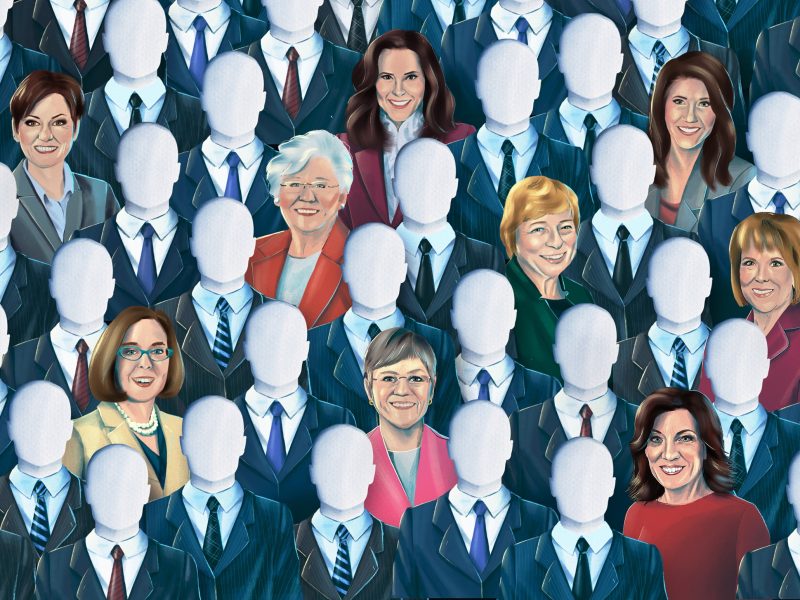
PARIS (WOMENSENEWS)- For a brief while after the first round of regional elections here last December, there was real talk of Marine Le Pen becoming president in the 2017 elections.
The strong showing by the far-right National Front party, which she leads as president, in the first polling after the Nov. 13 terrorist attacks here, seemed to indicate the country would be warming to her nationalist, anti-immigrant message.
But after the second round of runoffs, when the National Front failed to win a single region, Le Pen's chances appeared to whither. Bloomberg News ran a headline that seemed to catch the boomerang: “Why Le Pen Just Lost Her Best Chance to Win French Election.”
But Le Pen remains a force to be reckoned with. A Dec. 15 survey by pollster TNS SOFRES found her still a strong contender for president in 2017.
For a sense of how French women are responding to Le Pen, particularly on the hot topic of reproductive rights, we turned to Veronique Sehier, director of Family Planning, an association that defends the right to contraception, abortion and sex education.
Sehier said the National Front's opposition to abortion is considered extreme in France, a country that serves as a beacon on this issue.
“People here in France have been very sensitive that we can't question this right, which is a fundamental right,” Sehier said in a phone interview. Striving to convey how deeply this position is held here, she added: “I think that to be against the education of sexuality and equality it is really being against collective emancipation, which holds our society together.”
Same-Sex Marriage Opposition
Le Pen's niece, 25-year-old Marion Marechal Le Pen, an active party leader, has vocally campaigned against same-sex marriage and has promised to cut subsidies to family planning offices in the Provence region if she succeeds in leading the region.
Last November, Sehier responded with a statement of condemnation against Marion Maréchal-Le Pen's declaration against same-sex marriage.
Sehier said the far-right party does not like her organization “because they want to protect a heterosexual model of family and complementarity between men and women.”
Ismahane Chouder, an author and the co-president of the Paris-based Feminist Collective for Equality, emphasizes the importance of the national Family Planning association to French pluralism. She calls it one of the last places where it is easy to find social diversity, a commitment to caring for everyone.
“It is only because feminist organizations such as the Family Planning Office, engaged in contests of power locally and nationally, that we earned rights. But the fight is hard because there are still many men who believe women have attained equal rights,” Chouder said.
Unlike her father Jean Marie Le Pen, who spearheaded the formation of the National Front in 1972 and is notoriously volatile, Marine Le Pen has a much smoother and more amiable style.
In one of her many books “Against the Waves,” Le Pen, who is twice divorced, said she could almost be seen as a feminist as she has managed to bring up her children on her own.
The mantle of feminism, however, is hard to extend to her party or its spokespeople.
Traditionalist View of Women
In addition to its anti-E.U. and anti-immigrant narrative and opposition to abortion rights, the National Front has a long history of traditionalist views of women.
Nonna Mayer is a political scientist and research director at the Center for European Political Science Studies. In a phone interview, Mayer said that if Le Pen has a chance at being president it will be coming more from male than female supporters. “Traditionally, the far right has long recruited more support from men than women, who tend to be over-represented in non-manual jobs and the public sector,” she said.
Part of women's aversion to the politics of the far right has to do with churchgoing. Even though the social and political influence of religion is waning in France, Mayer said “women are still more religious and likely to go to church than men, while the xenophobic and non- egalitarian message of the far right has been condemned by churches as incompatible with their teachings.”
She also credits a slow advance of feminism throughout the country for steering women, particularly younger women, away from the traditional ideologies of far-right parties, “which often reduces the role of women to being simply wives and mothers.”
However, Mayer cautions that Le Pen likely has stronger appeal for women than her father.
“In a number of respects, Marine Le Pen has a more open view than her father regarding women and feminist issues,” Mayer said. In contrast to her father's “macho and sexist philosophy that puts off many women, especially younger women,” Mayer said Le Pen has a much smoother style.
Rebecca Amsellem is a 27-year-old feminist activist associated with Les Glorieuses, a weekly newsletter based in Paris focusing on progressive women's political and cultural concerns. Amsellem and another woman have launched a manifesto, “Women Fight the FN,” which uses the well-known French abbreviation for the National Front and calls on women to state their opposition to the party.
Amsellem began circulating the petition on the group's website on Dec. 2. So far it has gathered 15,000 signatures. “For 40 years, this party has been spewing nonsense proposals,” Amsellem said in a phone interview. “They have been wanting to abolish abortion and say women should be kept in their homes. It is very problematic.”
Would you like to Send Along a Link of This Story? https://ihtbd.com/2016/01/in-france-marine-le-pen-pushes-abortion-politics-into-view/


